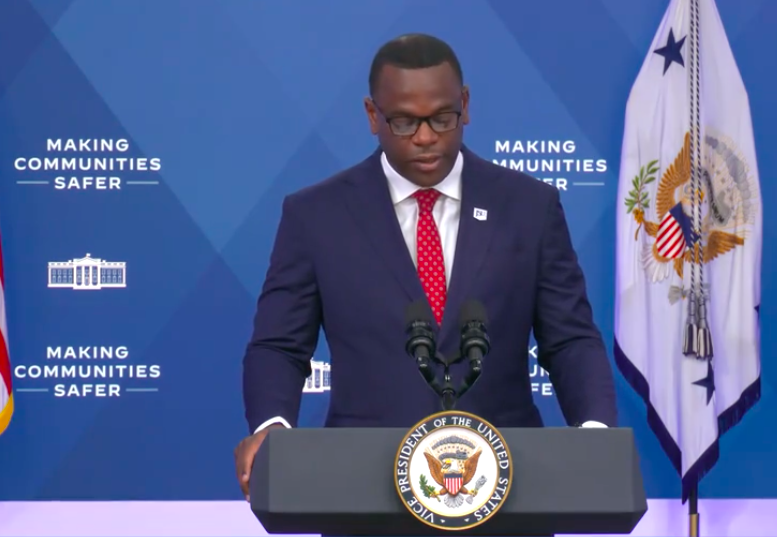
Grants respond to wave of HBCU bomb threats
In the last three months, more than one-third of our country’s Historically Black Colleges and Universities (HBCUs) have received bomb threats. While, thankfully, no explosive devices were found on any of these campuses, significant and lasting damage has been done by threatening the safety and security of the students, faculty, and staff at these institutions. As a result of these threats, learning has been disrupted, critical resources have been diverted to emergency response, and there has been an increased burden on already overwhelmed campus mental health systems. HBCU students – already experiencing negative impacts from the pandemic such as lingering effects of illness, trauma, and basic needs insecurities – are now experiencing additional stress and anxiety because of these bomb threats that can negatively affect their academic success.
It is important to view these recent and repeated threats through both the lens of the present day as well as our country’s history. HBCUs were founded to educate Black people in an America that refused to accept them as full human beings and prevented them – because of racial discrimination – from attending other colleges. Threats to the education and well-being of Black Americans and HBCUs are an unfortunate part of American history. The bomb threats that we witnessed in January, each week in February – Black History Month, and this month are reminiscent of the attempts during the Civil Rights Era to intimidate and provoke fear in Black Americans.
The Biden-Harris Administration is taking a whole-of-government approach in responding to these threats and ensuring the safety and well-being of students, staff, and faculty. Immediately following the first reports of the threats, Education Secretary Cardona and Homeland Security Secretary Mayorkas hosted a briefing with more than 40 presidents of HBCUs from across the nation to share information on grant programs, training resources, and other tools available to HBCUs to strengthen campus safety and security. Leaders from the Department of Education (ED) and other federal agencies have visited HBCU campuses. During these visits, federal officials heard firsthand about the need to modernize and update their operations, including campus safety and security, as well as the need for more resources to help bolster mental health services due to increased apprehension across the campus community.
Today, in response to these needs, Vice President Kamala Harris is announcing that HBCUs that have recently experienced a bomb threat resulting in a disruption to the campus learning environment are eligible for grant funds. These grant funds are from the Project School Emergency Response to Violence (Project SERV) program at ED. Project SERV provides short-term, immediate funding for local educational agencies and institutions of higher education that have experienced a violent or traumatic incident to assist in restoring a safe environment conducive to learning.
ED will work with the HBCUs that have received recent bomb threats to determine if Project SERV can help get funds to their campuses for immediate needs, such as targeted mental health resources or enhanced security, to restore the learning environment on their campuses. ED is able to provide this funding to HBCUs to ensure students feel safe on their campuses. ED staff will work with each HBCU to help determine their specific immediate needs. Awards typically range from $50,000 to $150,000 per school.
In addition to the short-term funds provided through Project SERV, the Biden-Harris Administration is providing HBCUs a compendium of resources that are available across the federal government – from ED, Department of Health and Human Services, Department of Homeland Security, and Department of Justice – to help with long-term improvements to campus mental health programs, campus safety, and emergency management planning and response. The resource guide offers a centralized source of information on grant programs and technical assistance activities across federal agencies.
These announcements today build off the historic investments and support the Biden-Harris Administration has already delivered to HBCUs – $5.8 billion in total to date, including more than $2.7 billion in American Rescue Plan funding – to ameliorate chronic underfunding and help address critical needs brought on by the COVID-19 pandemic.
Educational opportunity is a fundamental element of the American promise and HBCUs have played an outsized role in securing that opportunity for Black people. As President Biden indicated in Executive Order 14041 – which re-established the White House Initiative on HBCUs – HBCUs have a proud history and legacy of achievement. That legacy continues, with more than 100 HBCUs, located in 19 states, the District of Columbia, and the U.S. Virgin Islands that serve nearly 300,000 students annually. These storied institutions have excelled, in the face of discrimination, and their strength and convictions will not be compromised by these violent bomb threats.
